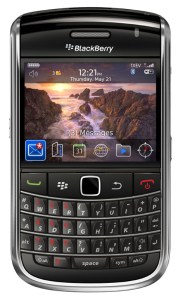
India’s Ministry of Home Affairs has delayed a ban on BlackBerry services for at least 60 days while the Department of Telecommunications evaluates whether India’s security concerns about the encrypted communications services can be allayed by routing traffic through BlackBerry servers located in India, rather than in overseas data centers.
“RIM have made certain proposals for lawful access by law enforcement agencies and these would be operationalized immediately,” the ministry said, in a statement.
India is demanding the ability for government agencies to lawfully to tap into BlackBerry communications, ostensible to combat militants, terrorists, and other threats to national security. Canada’s Research in Motion has repeatedly iterated that the encryption system used in its enterprise BlackBerry services doesn’t have a back door: it can only be deciphered with users’ self-generated decryption keys. However, the company has apparently offered to locate BlackBerry servers within the borders of concerned nations, like Saudi Arabia, which makes the process of obtaining copies of encrypted communications a matter of local jurisdiction, rather than an international request for material in data centers located in North America or the United Kingdom.
Smartphone competitor Nokia has announced it will be setting up Indian-based services in early November to facilitate government monitoring of mobile communications. Nokia’s Ovi email service has achieved broad penetration in developing markets where users’ first access to Internet email often comes by way of mobile phones, rather than a computer.
Editors' Recommendations
- This crazy case adds a BlackBerry-inspired keyboard to your iPhone
- The 15 most important smartphones that changed the world forever
- I’ve used Android phones for 10 years, and I hate these ones the most
- BlackBerry’s latest revival attempt crashes before launch
- BlackBerry is better off dead


